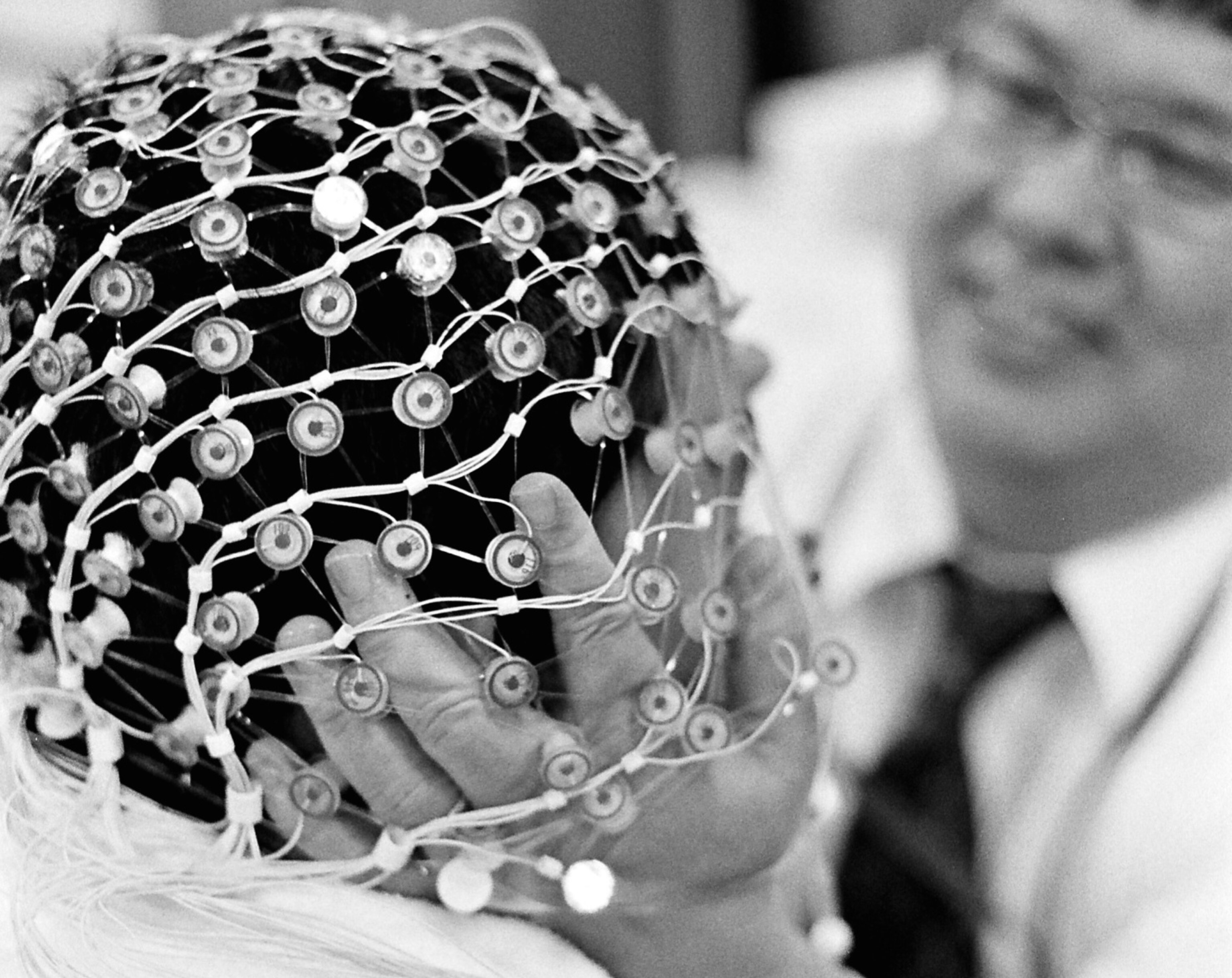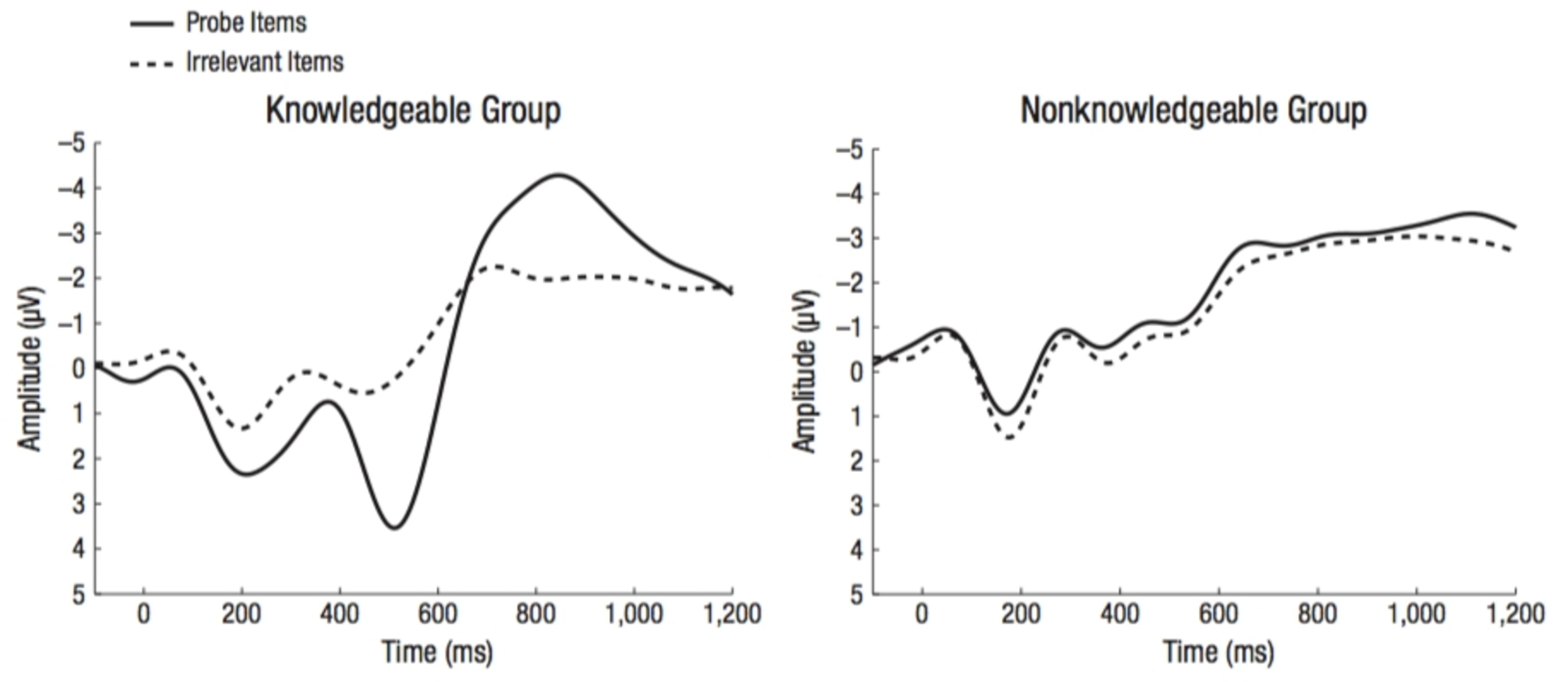
The Other Polygraph
You’ve no doubt heard about the polygraph and its use as a lie detector. The homely box records physiological changes — such as heart rate and electrical skin conductance — that are indirect signatures of emotion. Because these biomarkers tend to change when people tell lies, criminal investigators have long used the polygraph as a crude tool for detecting deception.
But there’s a huge problem with the polygraph: it’s all-too-frequently wrong. Truth-tellers may show a strong physiological response to being questioned if they’re nervous or fearful, which they often are — particularly if the target of a hostile interrogation.
“You end up with a lot of false positives,” says John Meixner, a law clerk to Chief Judge Gerald Rosen of the United States District Court for the Eastern District of Michigan. The traditional polygraph suffers not only from false positives, but missed positives: With a bit of training, liars can pass the test by intentionally turning down their emotions.
Because of these considerable flaws, polygraph evidence is almost never allowed in court. But it’s still used routinely by federal law enforcement agencies, not only for screening accused criminals but potential new employees.
It turns out there’s a much more accurate way to root out deception: a 55-year-old method called the ‘concealed information test’. The CIT doesn’t try to compare biological responses to truth versus lies. Instead, it shows whether a person simply recognizes information that only the culprit (or the police) could know.
Early studies on the CIT used biomarkers gleaned from a standard polygraph machine. But Meixner and his colleagues at Northwestern University have been studying the approach with electroencephalography (EEG), a technology that measures brain waves with a cap of harmless electrodes. When people are reminded of something they’ve personally experienced — whether an object, person or event — their brains produce a specific brain wave, known as the P300, in a fraction of a second.
Many research groups have set up mock crimes in the laboratory to show how the P300 might be used as an investigative tool. For example, several years ago Meixner and his advisor, J. Peter Rosenfeld, carried out a study in which they asked participants to pretend that they were part of a deadly terrorism plot. The subjects wrote a letter to the leader of the plot noting that there would be a bombing in Houston in July. Later the researchers showed the participants key words — “bomb”, “Houston”, and “July” — while recording their brain activity with EEG. Their P300 brain waves were significantly larger after reading those words than they were after reading words denoting other weapons, cities, or months.
The downside of studies like that one, however, is that they rely on artificial laboratory environments. In an upcoming issue of Psychological Science, Meixner and Rosenfeld report the accuracy of the CIT using a far more realistic situation.
In the new study, 24 volunteers wore a small video camera for four hours while they went about their normal routine. The researchers then looked through that video footage and chose words related to whatever each volunteer had experienced, such as “grocery store” (place visited), “Michael” (friend talked to), or “red” (color of umbrella).
The next day the volunteers came into the lab and had their brain waves recorded while they looked at the reminder words (such as “grocery store”) as well as similar words that were not related to what they experienced (such as “movie theater”).
“This test only involved information learned by subjects in a natural environment, entirely of their own volition, in the same way you’d be testing a criminal defendant,” Meixner says. In an investigative context, a suspect’s brain could be monitored while it responds to words or a picture of a specific object from the crime scene, such as a murder weapon.
Similar to the terrorism study, this one found that after seeing a word related to their previous day’s experience, participants produced a large-amplitude P300 brain wave that did not show up when they saw other, similar words. This didn’t happen for a control group that was shown the same words but hadn’t experienced anything related to them the previous day.
“There was perfect discrimination between the two groups,” Meixner says.

Other experts in the field are impressed by the findings.
“This research is the first convincing demonstration that incidentally acquired real-life memories can be reliably detected in people’s EEG brain activity at an individual level,” says Zara Bergström, a lecturer in psychology at the University of Kent in the U.K.
“Of course, there are still many differences between the types of memories that were detected in this study and those of a real criminal,” she adds. For example, a person’s P300 may be affected if they are under stress or intoxicated, “as many criminals may be.”
Meixner agrees. This technology, he says, seems to be much more reliable than the traditional polygraph. But the only way to know for sure is to start doing research on it in real-world investigations. “It wouldn’t be hard to run a pilot program and start testing it tomorrow — we’ve been trying to do that,” he says.
Law enforcement has good reason to invest in the CIT, according to John J. B. Allen, a distinguished professor of psychology at the University of Arizona.
“The CIT has a very important characteristic, and this is in stark contrast to conventional polygraph tests administered in the U.S.: The CIT rarely has a false positive result,” Allen told me by email. “Although the CIT may sometimes miss detecting when someone has information, it does an excellent job of protecting innocent examinees against false accusation.”
Allen was writing to me on his way back from Japan, where the CIT approach is used frequently. “The Japanese police administer over 6,000 CIT exams per year,” he noted.
So why aren’t any investigators using it here?
One reason, according to Meixner, is that the CIT only works if it’s given at the very beginning of an interrogation. Otherwise, through the process of questioning, the suspect may gain knowledge about the crime that he or she didn’t have before. Investigators are “not especially keen on that.”
The CIT is also a bit less versatile than the traditional polygraph, because investigators have to know some hard facts about the crime before testing the suspect. In a real-world terrorism plot, for example, investigators wouldn’t necessarily know what city or month or weapon to ask about.
But the biggest reason we don’t use the CIT, according to Meixner and Rosenfeld, is probably cultural. As they wrote in a review paper last year: “The members of the practicing polygraph community simply do not like giving up [that] which they are used to.”